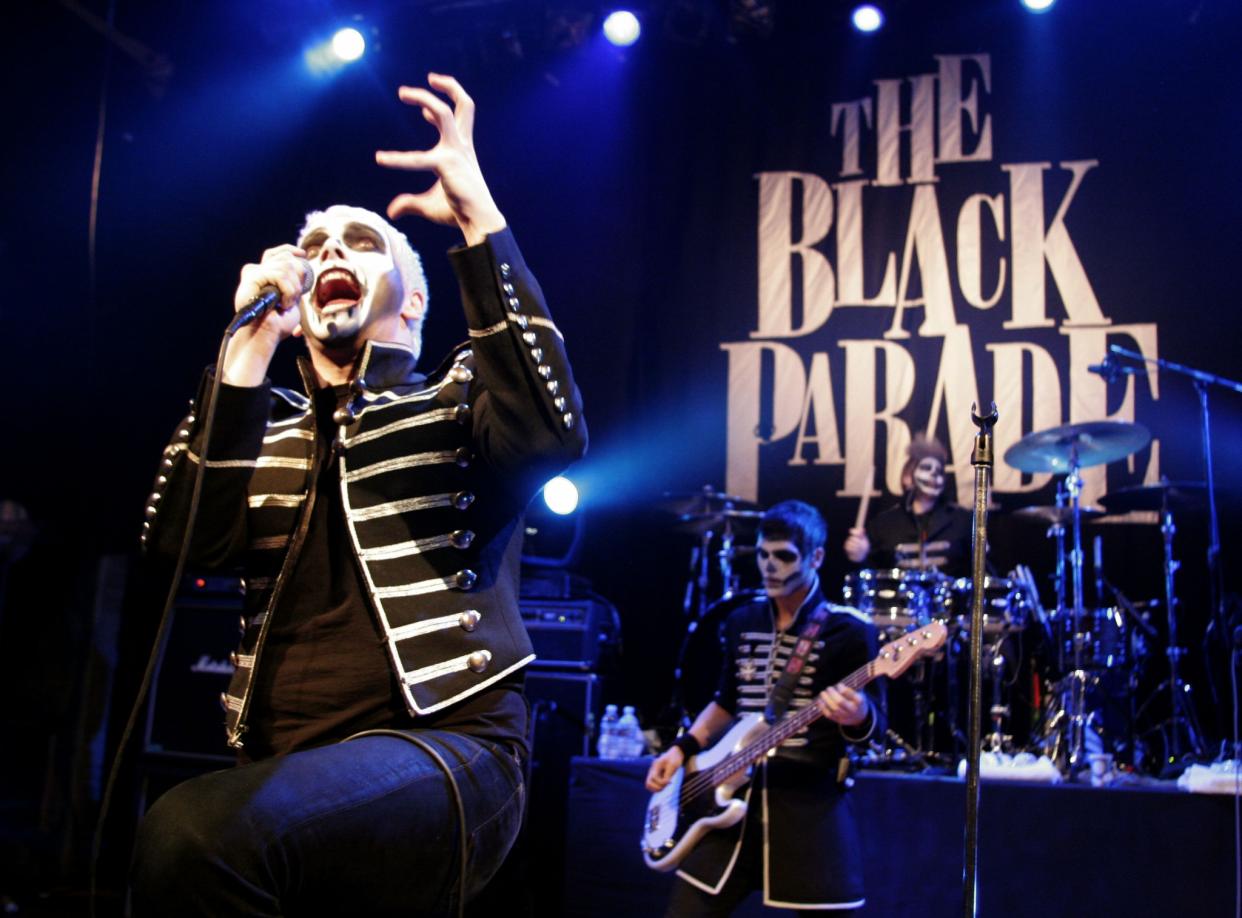We’ll Carry On: Gerard Way and Steve Aoki on the Enduring Power of My Chemical Romance’s ‘The Black Parade’

Earlier this year, superstar DJ Steve Aoki and former My Chemical Romance frontman Gerard Way were experimenting in the studio, toying with the idea collaborating, when someone mentioned that MCR’s The Black Parade album was turning 10 years old in 2016.
For Aoki, it reminded him of how much he loved the landmark release. “I started thinking about ‘(Welcome to the) Black Parade’ and I was like, ‘I want to play that in my set, I would love to do a remix,’” he tells Yahoo Music. “So then I asked Gerard if he could give me the stems.”
Aoki wasn’t the only one to surrender to nostalgic MVR fandom this year. Back in July, My Chemical Romance put up a teaser video to preview the anniversary edition of the album, and fans, thinking it was a reunion, broke the Internet — or at least, in a massive coincidence, Twitter went down the night the video went live.
Speaking to Yahoo Music at the Downtown L.A. office of Aoki’s Dim Mak label, where they’re playing the video game Overwatch live on Twitch to promote the remix and raise money for charity (Aoki wins the war, thus raising $10,000 for Best Buddies), the DJ casually mentions that he sees “(Welcome to the) Black Parade” as the “Bohemian Rhapsody” of this generation. That is lofty praise indeed, leaving even Way a little blown away at how much the album continues to endure with listeners.
“It’s a trip, it for sure is,” Way says. “It’s amazing to see how that record aged a decade on; the way people talk about that record is really intense. It’s overwhelming at times.”
Though he is left stunned at times by how much love is out there for the album a decade after its release, looking back, Way acknowledges that the band was at a creative peak when recording The Black Parade.
“When you’re making something, you can feel when it’s special,” Way admits. “Sometimes you just don’t know, sometimes you have no idea how it’s gonna be received or whatever, but the feeling when we were making that record was really electric, and we knew we were kind of on to something.”
Elaborating, Way says the album was a response to the shifting ways music was being received by fans. “It was one of the last hurrahs, which is why I think we made a concept album,” he says. “At the time they were saying albums were gonna stop counting as much, people weren’t gonna buy albums anymore, and we were like, ‘Well, let’s make an album to end all albums.’”
As a fan, Aoki thinks the band succeeded probably beyond even their expectations. “That was a perfect way to do it, ‘cause you have to hear the whole thing. I miss that era where you listened to an album — you know every single song regardless of whether it was a single or not,” he says. “That song is great, but the whole album… it’s funny, because that period of time, it was about the album. You’re right — it’s one of the last albums I remember, too.”
Aoki gets to play the remix often and watch thousands of fans relive the memories that come with the iconic track. He experiences that zealousness vicariously as fans sing along to the “we’ll carr-eeeee on” part that Aoki says he just had to leave in.
“You hear it and it’s as fresh as when you heard it first time — that’s when you know,” he says of the song. “There are certain songs that bring you back to that place, like when I see a kid in the crowd singing this song and their eyes are closed, screaming, hands waving everywhere. That’s exactly how I f—ing feel. It’s a universal feeling when you hear something and you bring it back and you’re like, ‘I don’t give a f— what anyone thinks!’ You’re tearing your skin off and thinking about the energy, the memories, the lyrics, and the whole essence.”
Watch these flashback videos from other pre- and post-Black Parade eras of MCR’s career:

